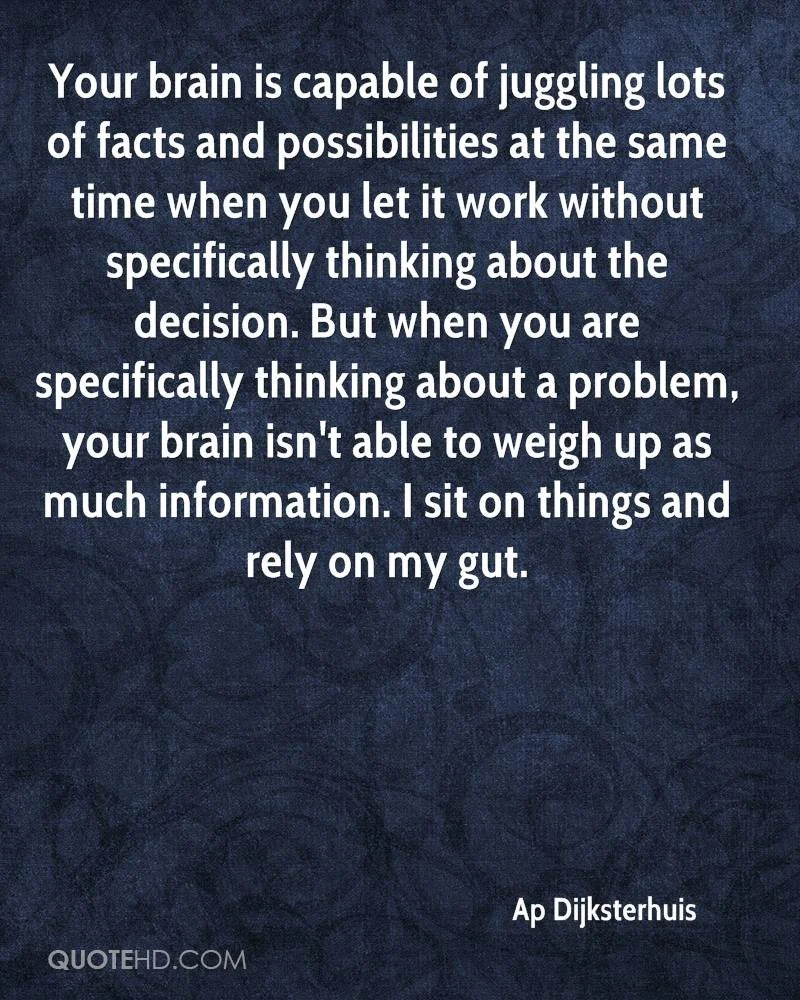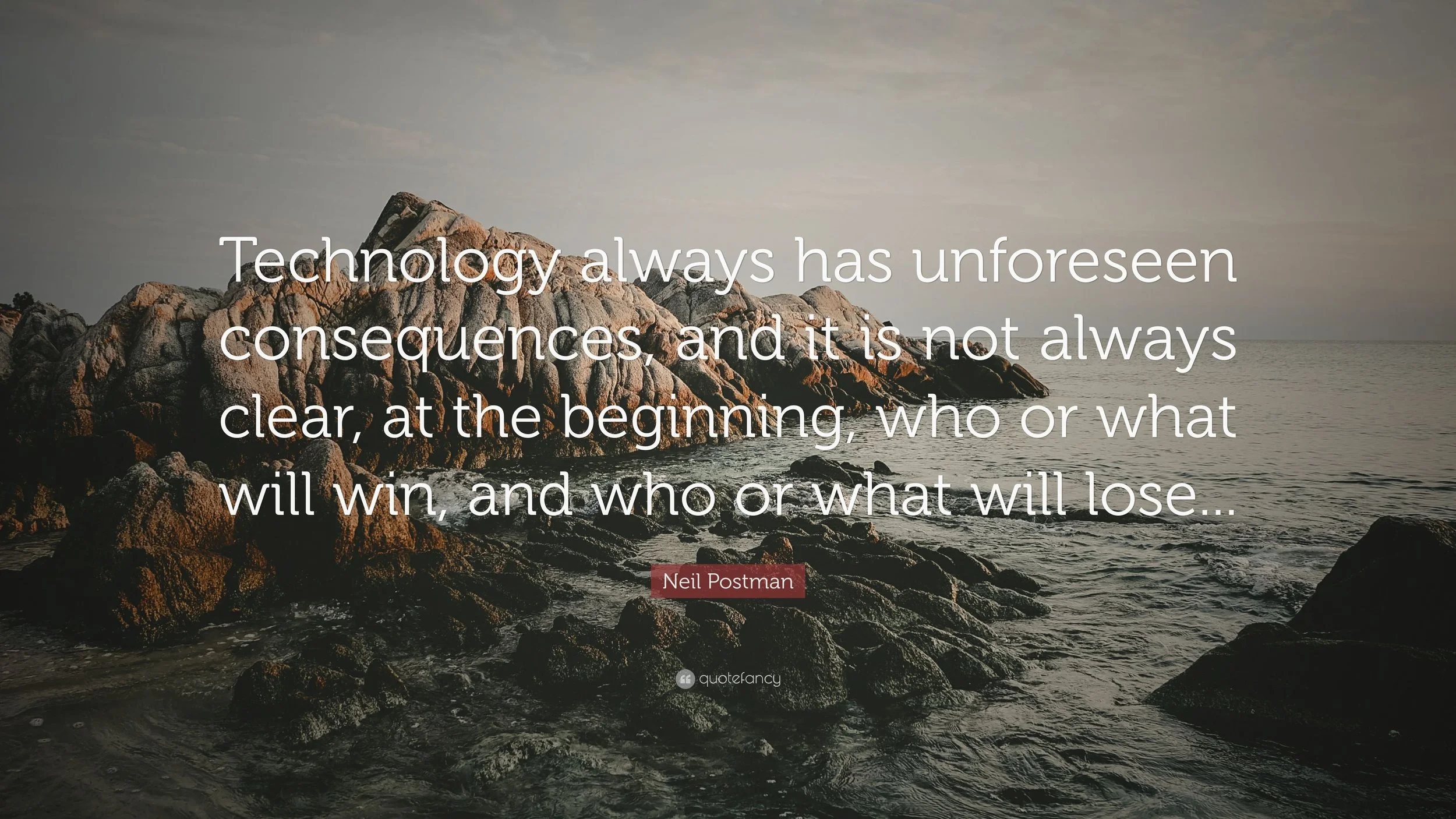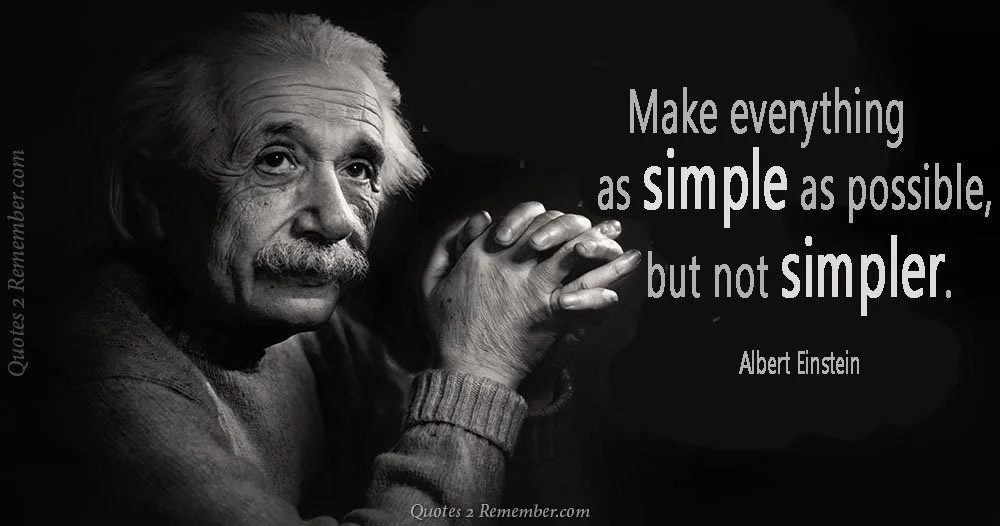Our world has become more complex. And with it the issues we face, whether it's Covid19, immigration, housing, energy transition or climate change. Developing good policies has never been so difficult. Unfortunately, all too often, policy at the national and supranational level is still made as if we live in a manageable, predictable world. Or a world that we can make manageable again solely with the help of technology, models and narratives. A world that can still be addressed top-down, the old way. Policy makers sometimes seem to be blind to the complex reality of the present time. A policy blindness, a lack of awareness of the real world effects of the policies pursued by administrators, with potentially harmful consequences for many generations to come. This article dives into the background of all this and provides you with practical policy making tools in the form of heuristics, or rules of thumb, later on.
Please note: This article was written in November 2021, pre-Ukraine war and pre-inflation crisis, from a Dutch perspective and has not been updated. Some examples might therefore be less relevant for you or possibly outdated although the principles are more relevant than ever. Also, it’s good to realize that one could write a whole library of books about this subject. This article is written as an executive summary of that library. It has therefore not been worked out in full or in detail, but it gives you tools to identify and remedy policy blindness. In yourself, in organisations and in governments at all levels of society. If you want guidance in mastering complexity and regaining sovereignty as a leader, we would like to refer you to our services. Thank you.
introduction
Evolution tells us that the world will become more and more complex, becoming more layered and interconnected over time. The open society in which we live in the Netherlands has become extremely complex: We are located on just 34,000 km2 with some 17.5 million inhabitants of more than 200 nationalities in the most open economy in Europe. A consequence of this is that the functioning of our society can no longer be deduced from the properties of its components: the people, the companies, the organizations, the institutions etc.
Moreover, complex systems behave differently on a small scale than on a large scale. So it is quite possible that the evidence that is delivered by research on a certain scale, can no longer simply be translated to the system as a whole. An insight that has not yet penetrated all branches of science. We are now seeing this, for example, with regard to the Covid vaccines. Originally, one vaccination with a sufficiently high vaccination coverage was expected be sufficient to collectively be adequately protected and to stop the pandemic. The reality at the societal level turned out to be different and then two vaccinations were needed and a vaccination rate of well above 80% was achieved. Yet now a boostershot is added and we are still not in safe waters. And that's hardly surprising.
The behavior of a complex system is determined by the mutual relationships of the different elements. At the societal level, we talk about a dynamic interplay of a huge number of relationships. That interplay also consists of second, third and even fourth order effects. These effects can also influence each other, to make the situation even more complex. This can never be fully taken into account, no matter how much big data, smart algorithms or machine learning you throw at it. In a complex system the exact relationship between the elements is not known and sometimes not even knowable. And in those cases, therefore, not measurable. Generic predictions can be made, but exact predictions cannot. Moreover, a complex system is adaptive, which means that the predictions you make today may become outdated tomorrow. As a policy maker you will have to learn to deal with this uncertainty, volatility and changeability.
This requires decision makers to do more than just weigh different interests when taking a decision, which also carries with it the risk that the only most influential lobbyists will see their interests represented, while that is not desirable for the system as whole. There can be so many relationships at play when looking for a solution to a social problem that it is easy to loose oversight. For example, when talking about Covid, there are many relations that can influence the social impact of the virus:
immune system; how many people have compromised immune systems or other underlying disorders.
lifestyle; how many people are obese or athletic, how many people use vitamin D, zinc and selenium supplements and how many people have deficiencies in these areas.
healthcare system; are there shortages in care capacity, especially in the intensive care units, or not. Has a far-reaching privatization, and with it exposure to financial and market forces, led to an excessive drive for efficiency, as a result of which there is insufficient buffer capacity in crucial places. In other words, has all the ‘air’ disappeared from the system or is it still available.
physical environment; what impact does ventilation have on the behavior of the virus. Or the wearing of face masks.
ethics; how do policies relate to themes such as physical integrity, personal responsibility, solidarity, self-determination vs. an all-powerful government, etc.
costs of living ; increased costs of, for example, housing and energy make working in healthcare, especially for nurses, extra unattractive, thus possibly leading to staff shortages.
psyche of the people; what is the impact of the threat of the virus, a.k.a. fear, on the human psyche. What of the policies pursued and what of the nature and way in which the media report about them.
pharmacists and virologists; what is the effect of possibly billions in profits on the behaviour of these parties, what are their interests.
our view of life, coexistence, illness and death; do we accept that sickness and death are part of life or not. How much freedom are we willing to exchange for a goal of which it is uncertain that it will be achieved (after all, we are talking about an adaptive complex system). Is there room for individual choice or are protocols and standards leading.
And to complicate matters, as mentioned earlier, these relationships can also influence each other. Concerns about rising costs of living can, in the human psyche, amplify continuous negative and invasive media coverage and thus negatively affect the functioning of the natural immune system through psychosomatic pathways. This increases the social damage of the virus.
When you fully realize these types of phenomena, it is not surprising that you wonder how on earth you are supposed to find your way in such a intricate force field. How do you deal with so much complexity and uncertainty? Where do you start? A good and proven starting point in these kinds of complex matters are so-called heuristics, or more simply put proven rules of thumb. These can ensure that you keep oversight and do not fall prey to policy blindness. This way you prevent the policy from running away with you. Here are thirteen proven rules of thumb that help you deal with complex matters:
RULES OF THUMB to deal with complexity
1. Be informed by experts, but never let them determine policy.
If you let them, you will end up in a trap that you can't get out of. A cul-de-sac in which they will always have the knowledge advantage, the upper hand, so that you can no longer properly assess whether their proposals are sensible or not. Experts, especially in highly specialist fields, usually look at their subject through a narrow lense; a lense that has grown around them over the years, to such an extent that they no longer perceive it themselves. The fact that, to put it bluntly, for example, for virologists, there are only two policy varieties: vaccination or isolation, does not mean that things work so easy in a complex reality. Good policy requires a generalist view, fed with expertise. Use the input of specialists, preferably from many different fields, but keep an overview and stay in control.
The problem with experts is that they don't know what they don't know .
— NN Taleb in: The Black Swan, the impact of the highly improbable.
2. Get your eyes and ears on the ground.
Management Information Systems never fully inform you about the situation in complex matters, no matter how much you provide them with data and smart algorithms. No matter how tempting or dramatic the produced charts look. Reasonably correct input can lead to incorrect output in complex situations. Assumptions, small measurement deviations or bias can be magnified in such a way that the abstract screen ‘reality’ deviates more and more from the actual reality. As a result, predictions from models on complex issues, be it Covid or the climate, can turn out to be wrong in real life. Keep this in mind and never solely base your policy on them. Also, listen to experienced professionals and engineers, the people with hands-on experience who still observe for themselves (not their representatives or managers!). They give you the reality check you desperately need. Remember: When the online weather service tells you that, based on their models, it's dry but your eyes and ears get wet in the meantime, you can safely assume that it is raining and pack an umbrella.
3. Avoid the irreversible.
In other words: be quick with taking easily reversible measures, but take extra time with irreversible measures. Especially when these are potentially system-threatening. The graph below outlines the relationship between the effort you need to make to restore the effects of a measure, and the time you need to adequately observe and study the system before taking that measure:
For example, when you talk about intervening in human genetics, the effort you have to make to repair possible damage is very large. Or it is even no longer possible at all. Fast tracking of mRNA vaccination by both EMA and FDA means taking a big risk. Logically, the trial period should last longer here than with a vaccine developed on the basis of a technology that has been tested for a long time (eg. via inactivated virus). Certainly when one thinks of vaccinating the vast majority of the population and not just the risk groups. From a risk perspective it’s like playing dice with the population.
The same applies to the building of complete neighborhoods without a natural gas connection as we have in the Netherlands. A measure that is reversible only at very high costs. Energy supply affects the fundamental operation of society and so you have to take your time, many decades, for a complete energy transition. You will however be challenged to withstand the pressure that is exerted on you by the media, lobbyists, NGO’s, activists, etc. to take difficult-to-reverse decisions too quickly. Remain sovereign nonetheless.
4. Only do business with parties with skin in the game.
Surround yourself with people and stakeholders who stick their necks out as much as you do. Corporations who ensure themselves of billions of profits with a single stroke and in the meantime divert their complete downside risk to you and society, have insufficient skin in the game. It is therefore better not to do business with entities that use their extensive legal departments to cover all their (liability) risks. Or draw up your own conditions, forcing them to take a clearly measurable risk that is proportional to the risk that your organization runs. Where possible and responsible, also consider doing business with SMEs or freelancers. They by nature have skin in the game. The policy trend to make it increasingly difficult for the self-employed is therefore an unhealthy one and only in favor of the aforementioned corporations .
Skin in the game—ie, having a measurable risk when taking a major decision —is necessary for fairness, commercial efficiency, and risk management, as well as being necessary to understand the world.
— NN Taleb
5. Make better decisions by regularly letting go of your work.
It is especially concerning complex issues that you make better decisions by regularly letting go of work completely. Thanks to people like Professor Ap Dijksterhuis, we know that you can best use your unconscious when dealing with complex issues, while conscious thinking works excellently in relatively simple situations. Always keeping busy, only actively thinking, managing and problem solving, 'going at it full force', making working weeks of 80+ hours, looks impressive, but is counterproductive for making good decisions in complex situations. By letting go of issues and not thinking about them anymore, your subconscious is given room to come up with effective solutions that your conscious self would not have come up with. So take that vacation, power nap and general time off. And preferably get your body moving.
6. Don't become obsessed with technology.
Technology routinely overpromises and underdelivers especially in situations with a lot of uncertainties. Also, you shouldn't just implement everything that’s technologically possible. As Neil Postman rightly said, “Technology is never neutral“. It always creates winners and losers, advantages and disadvantages, and you have to take that into account. High tech, big data and smart algorithms can certainly improve decision making in a lot of situations. At the same time, the sense (illusion?) of control and malleability that a dashboard full of indicators provide, can be like crack cocaine for administrators, happily provided to you by dealers in Silicon Valley. Administrators will rarely say no to it, even when they should. Once you're hooked on a certain technology, the way back is a tough one. Think, for example, of Covid QR codes, mRNA vaccines, wind farms, solar panels or biomass plants; technologies whose promises are only fulfilled to a limited extent or whose risks and disadvantages only become clear after their introduction.
Remember: Not every issue needs to be solved with technology. Sometimes it's enough to do little things differently or quit something, as the following rule of thumb says.
7. Take the Via Negativa more often.
Or in other words : Add value by doing nothing or not doing things. Acting comes across as powerful and decisive, as the stuff leadership is made of, and that always works well in the media. It is therefore very tempting for administrators and especially their egos to act, intervene and create new policies. Still, with complex systems, following the Via Negativa is often the better choice. You do this by refraining from that which is harmful, such as stopping eating sugar in type-2 diabetes, or even by doing nothing at all for a while. It touches on what doctors have been taught in their training: Primum Non Nocere, first do no harm. You will then have to resist the pressure of parties with a revenue model that is based on intervention by adding something, the Via Positiva, such as the pharmaceutical industry where public health is concerned. And make no mistake: doing nothing or quitting a long standing habit sometimes requires a lot of self-discipline.
8. Be honest about uncertainties, risks and progressive insights.
A complex system has uncertainties and, as stated earlier, is adaptive. You will therefore by definition have to deal with progressive insight. So be careful not to make statements that are too 'definite' in uncertain situations. If you have to go back on your words or your predictions again and again, this affects your authority more than if you tell people in advance that there are uncertainties and that your decision may become outdated in the future. Realize that you too do not have a monopoly on being right: True science is never settled, science is never certain. Perhaps a radical thought in this regard: Treat people like adults and not like little children. Clearly communicate uncertainties and risks.
9. Keep it simple, but not simplistic.
Only those who can explain a subject matter in an understandable way really master it. That's just not exactly easy in complex situations. You will have to find a balance between sufficiently understanding the matter yourself, already a challenge in itself, and conveying it as simply as possible. But not so simple that it is no longer true. An example. Coronaviruses are endemic: they have (almost) always been here and always will be. And in many mutations, each with a different risk profile. Presenting 'the vaccine' as a solution to all our current and future social problems thanks to the virus and 'the unvaccinated' as its cause as some leaders have is both simplistic and unnecessarily polarizing. Oversimplification does more harm than good in complex situations, because it feeds an illusion; an illusion that can lead to disappointment at a sometimes high price. Such as the idea that the climate can be regulated with a kind of rotary thermostat on the societal wall; one that indicates human-created CO2. Turn left and the climate cools down, turn right and it gets warmer. If only it were that simple…
10. Don't get high on your own propaganda supply: curb your narcissism.
Selling policy to the public seems to have become more important than creating solid policies in the first place. The explosion of spin doctors, nudgers, behavioral psychology units, PR and communication agencies and -employees speaks volumes in this regard. Through the media we are bombarded 24/7 with a heavily edited image of reality. An image that is getting further and further distanced from reality. Charts and statistics are easy to bend to your liking, for example by being selective in the context or even omitting it completely. Cherry picking data has become customary. Also, you have to ask yourself whether, when you are considering using celebrities and influencers to market your policy, if you are really doing a good job in the first place.
There is also a personal danger in working with colored communication tweaked for desired effects, especially with narratives: You may start believing them yourself. You become so invested in them that getting back on your words is experienced as loss of face, a blow to your ego. You then can't go back when you should and instead double down on a policy that has proven to be flat out wrong.
There can be narcissism without greatness,
But no greatness without narcissism.”
- Albert J. Bernstein
Attention and polished imagery feed the narcissism that we are all prone to. And people who aspire to power, especially so, as the above quote so eloquently puts. Your ego, if properly controlled, can contribute to great achievements, but when you start believing your own PR, your fall from grace is usually imminent.
11. Avoid groupthink, think for yourself.
Leaders are just like the rest of us in that they also have networks and groups to which they belong. From student/alumni associations to the World Economic Forum and everything in between. It’s useful and pleasant, but not without risk. Groupthink is a psychological phenomenon in which the desire for acceptance, harmony or conformity in the group results in irrational or dysfunctional decision-making. It can be found everywhere, at the local sports club and the House of Representatives, in Brussels, your neighborhood village, The Hague and Davos. You too are not immune to the desire to "fit in" and receive the social reward of the group in the form of affirmation and recognition. This can lead to you agreeing to things you should really say no to.
As scientists, the experts you consult, are also people like us, this phenomenon plays out with them too. Especially when it is fed by selective research funding (e.g. by ‘philanthropist’ NGO’s). Peer review and peer pressure then become intertwined in an unhealthy way. And as Dutch education minister Robbert Dijkgraaf once said on BNR: “When science and politics are mixed, everything becomes political”. Way too much that passes for ‘science’ is just ideology dressed up with statistics. So keep thinking for yourself, dare to be independent and stick to your own course, when your inner compass deviates from the direction the group is in.
“ Policy blindness, fueled by a toxic cocktail of PR, media, groupthink, narcissism and ideologies, can easily turn into a full-blown policy psychosis. Leaders lose touch with reality to such an extent that they would rather get completely lost than turn ship halfway.
— Dirk Anton van Mulligen, Founder of Better Leadership, 2021.
12. Make transparency your ally.
Transparency keeps you accountable and with both feet on the ground. It's one of the key ingredients of good teamwork and helps to avoid being tempted into doing things you shouldn't be doing. If, as we have seen a lot in recent years, parliamentarians are unable to access contracts signed by the government, if documents released in response to so-called WOB requests are systematically painted black, then democracy ceases to function properly. The government will then no longer be accountable to the population on whose behalf they are working.
As a result, they become detached from their raison d'être and become policy blind. Don't let the same thing happen to you, actively seek transparency yourself. That includes the circles and networks to which you belong. Do not delay the publication of sensitive data for so long that it is no longer useful to stakeholders. If you can't publicly explain your decisions or actions they were probably the wrong ones to begin with.
13. Learn from the past.
You do this by, for example, checking the track record of the parties you want to work with. When it comes to public health, few parties have such a stained track record when it comes to ethical behavior as pharmaceutical companies. Billions in fines and settlements out of court underline this. Why would you trust them on their blue eyes this time? The same with experts. If in the past, we only have to think of the Mexican flu, these have been so wrong that it has led to substantial damage, why would you blindly follow them now. Be discerning and careful about this. Regularly review and (self)reflect and then learn your lessons. The following words from 2010 seem downright visionary, but are simply the conclusion of someone who has learned from the past.
“In conclusion, I cannot predict the future but if it repeats the past it will be full or continuous alarms and possible declarations of pandemics. If the complex interplay of poor science, Key Opinion Leaders, media business, pharma business, pandemic business and unaccountable decision-making is not interrupted, we will have many more similar episodes. Scientific evidence, systematically and independently assembled and weighted by it quality, needs to be center-stage and not simply a “pretty maiden” whose services are called upon on demand.”
— Tom Jefferson, Cochrane Foundation in: the Jefferson Statement, 2010.
IN CONCLUSION
Of course more rules of thumb that can help you avoid policy blindness can be imagined, but these thirteen will get you far enough. In summary, the common thread is this: Stay grounded, in touch with reality, know your limits, dare to doubt, keep it clear, don't let yourself be manipulated, keep the initiative and stay true to yourself. In these heated, hysterical, almost manic times, there is a great need for this type of leadership, which I call sovereign leadership.
This requires something of all of us. We are now, in the early 20s, collectively entering uncharted territory. The world has not only changed quantitatively (more, faster, smarter, bigger, etc.), but also qualitatively (totally new, sometimes unknown factors play increasingly important roles). When we keep on doing what we have always done, how much improved and smarter it may seem, we will not be able to cope with the problems that lie ahead. The decisive factor will therefore not be what we do, but the level of consciousness and maturity from which our decisions and actions originate.
We are therefore all challenged to work on our inner selves, to mature, to evolve. To develop a different view of ourselves, of society and of life in general. To curb our lower instincts and connect us to a common goal beyond tribal- and self-interest.
With that, the most important advice for all of us in these complex times is this: Follow your own route beyond nature and nurture, take the road of increasing awareness, self-mastery and free will. Become truly sovereign. Our future depends on it.









